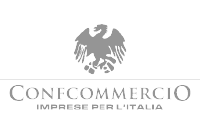
Despite reputations and prejudices, even by many Italians, Italy has an affordable healthcare system and a high standard of medical assistance. Its healthcare system is ranked 2nd according to WHO (World Health Organization), after France, and has the third best medical performance worldwide. Italian doctors are considered well trained and very passionate about their profession.
Healthcare is provided to all citizens and residents in Italy by a mixed public-private system. The public part is The National Health Service (SSN) called The Servizio Sanitario Nazioanale, which is organized under The Ministry of Health and offers inexpensive healthcare to all European citizens, which is mostly financed by direct and indirect taxation. However, there are considerable variations in coverage and service quality between the different regions.
Every person registered with The Italian National Health System is entitled to choose a general practitioner (Family doctor) and a pediatrician. If you are not satisfied with the ones assigned you can decide to replace them and choose by looking up in the list available at the local health authority, ASL (Azienda SanitELocale) of your place of residence. In Italy you also have a free health care service for emergency cases, the doctor on duty (Guardia Medic), which normally operates at night and on holidays.
If you are in need of prescription medicines and other drugs, your family doctor will issue you a prescription that you can present to the pharmacy (Farmacia). Some drugs considered ‘Life-savers’ are free or on payment of a co-pay fee. Other medicines are not included in the services of the SSN and have to be paid entirely.
In order to get a specialist examination or radiological and laboratory tests you have to obtain an authorization, a medical prescription issued by your GP or pediatrician, and make a reservation by showing it as well as your SSN card. Specialist examinations are provided on payment of a co-pay fee, except in case of exemption. This co-pay fee, known as the ‘ticket’, is provided by the public National Health System (SSN). All citizens have to pay a ticket before undergoing specialist examinations, except for those who are entitled to exemption. The co-pay fee must be paid before using medical services. Dentist treatments as well as outpatient treatment are also subsidized by the SSN. Some particular circumstances (disability, chronic diseases, status of inability, low income or age reasons) entitle patients to co-pay fee exemption.
Waiting times are usually up to a few months in the big public facilities. Therefore, some Italians and expatriates, a total of 15%of the population, prefer to take private health insurance. With private insurance, you can freely choose your own doctor and specialist and be treated at private hospitals, thus avoiding waiting long queues to get an appointment for a medical specialist. Private hospitals in Italy have brilliant accommodations. Although the comfort and the quality of service from private hospitals are superior, the medical care is likely to be similar to public hospitals.
Therefore, regardless of where one comes from, it is imperative that you have health insurance from the moment you arrive in Italy. Without it, issuance of a permesso di soggiorno (Permit to stay) is not possible. In order to use public health services you have to register with the National Health System, which is implemented in the ASL (Local Health Authority) closest to your place of residence or domicile. On the SNN card you receive, your name and the name of your GP are indicated. The SSN card expires when your stay permit does so make sure to prepare everything before you travel to Italy.












